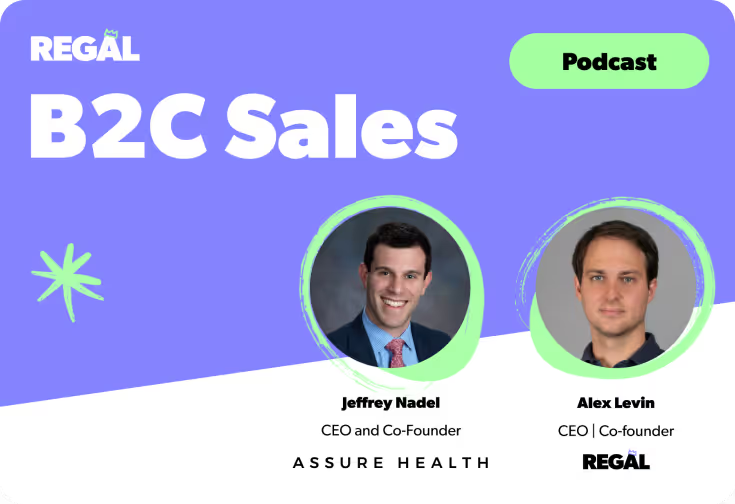
September 2023 Releases
Of all the work streams needed to launch new outbound calling and texting programs, we get the most questions about compliance – particularly how to have the proper consent before contacting customers in the US. It’s a sign of the need for clearer regulation, the potential penalties, and the willingness of brands to color inside the lines.
As a business calling and texting customers, it’s critical to stay up to date on compliance regulations. This article is not legal advice, but it should serve as a primer on the major regulations and concepts:
Outbound Campaign Compliance is the art of orchestrating marketing initiatives that captivate and connect while meticulously aligning with legal standards. In a world teeming with regulations, it's the delicate balance between effective outreach and regulatory harmony.
Before you call or text a consumer, make sure you have the proper consent.
* Most lawyers will still recommend getting prior express written consent as the regulations around what constitutes an ATDS can differ between Federal law (see more permissive Facebook v. Duguid SCOTUS ruling from 2021) and individual states (which tend to be more conservative on the definition).
Anyone doing outbound calling and texting should know the Telemarketing Sales Rule (TSR) and abide by its key principles:
Although everyone has heard of the Federal Do-Not-Call Registry, most of the time, you will not need to check the DNC (i.e. do not need to exclude customers on it) because your outreach will meet one of the following common exemptions:
The Telephone Consumer Protection Act (TCPA) is a federal law enacted in 1991 that bars the use of an Automated Telephone Dialing System (ATDS) to make unconsented-to calls or texts that include solicitation (e.g. marketing). The TCPA (summary of the rules here) and subsequent declaratory rulings by the FCC (which are taken as law) have established that businesses must receive prior express written consent from a consumer to use auto-dialed calls and texts. Let's dig into that more.
First, an ATDS is software that automatically texts or calls a large number of customers with minimal agent intervention. There is a much tighter legal definition, but we’ll wait to dissect that in another article.
And opposed to the informational outreach mentioned above, to solicit to customers means any outreach with “material advertising the commercial availability or quality of any property, goods, or services”. This includes all sales calls, marketing texts and even smaller suggestions to book again. For instance, if your delivery notification is going to include a push to book again, it’s now considered solicitation, too.
Almost every brand we work with is already collecting the customer phone number in onboarding – often before the email address. To be able to use an ATDS, you need prior express written consent. What is that? Clear language that the customer clicks to agree to in order to receive calls and texts from an auto-dialer to their cell phone number. For instance, “By clicking Next I agree that my phone number will be used for marketing, text messages, and calls from an automated telephone dialing system. Consent to receive such calls or messages is not a condition to using our services. To opt out, reply STOP.” And it is typically recommended that you get “double opt-in”, or something that requires two clicks such as a checkbox or radio button that the customer must select to prove they have read the passage.
Some marketers are concerned that adding the phone number field or double opt-in will lower conversion rates so we sometimes suggest making the “opt-in” field optional to start, so that someone can complete the original transaction even if they don’t want to be contacted for marketing purposes. Even when it’s optional, we find 20-30% of people will still provide that opt-in and phone number. Moreover, the benefit of personalized sales outreach to the opted-in customers more than makes up for any potential decrease in conversion from introducing the required opt-in. And overall, we find that adding in the phone number request and opt in does not detract from conversion.
Here are some real life examples from other companies that include variations with and without checkboxes


TCPA violations can result in financial penalties and reputation damage. The Federal Communications Commission (FCC) has the authority to impose fines of up to $10,000 per violation (per text or call that violates the TCPA).
Keeping track of the regulations, and tracking the necessary opt-ins/opt-outs by channel and times to call can get complex fast. Regal.io offers vetted TCPA compliant opt-in techniques, and manages the opt in/opt-out and allowable call times for our clients by channel (SMS, voice, pre-recorded voice) so that you do not text or call the wrong person. The more people you have to contact, the more you benefit from technology that can help automate the process and help you stay compliant. The penalties for being on the wrong side of these regulations are significant. Start using Regal.io to call your customers with confidence.
Compliance is more than a checklist; it's the art of forging harmonious connections. Respect audience preferences, grasp legal nuances, and strategically leverage regulations for campaigns that go beyond outreach to meaningful engagement.
Embark on a journey through our case studies, unveiling how businesses adeptly navigate the evolving landscape. Ready to fortify your communication strategy for the future? Schedule a demo now and witness firsthand how Regal.io transforms and elevates your customer interactions.
Learn about these products and services at Regal.io, read more posts at regal.io/blog or email us at hello@regal.io.
.png)

Ready to see Regal in action?
Book a personalized demo.







